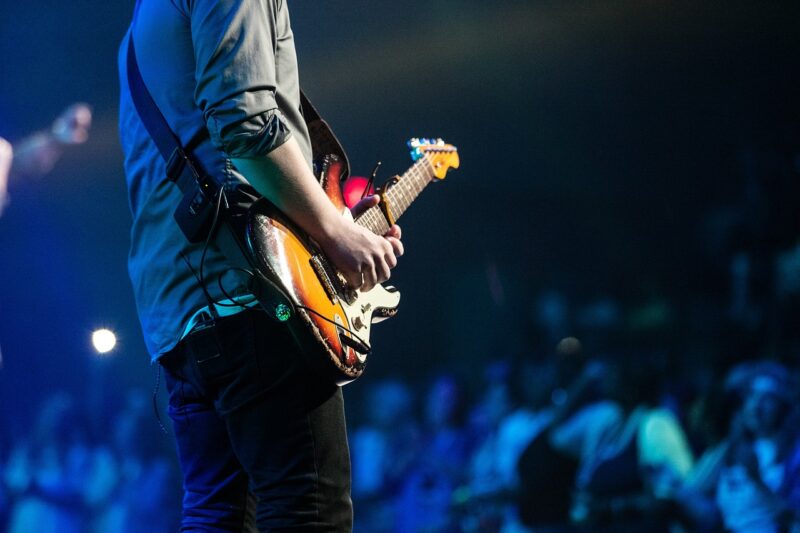
In recent years, virtual music concerts and events have surged in popularity, driven by advancements in technology and changes in audience behavior. With the pandemic highlighting the need for innovative entertainment options, artists and organizers have embraced digital platforms to reach fans worldwide. This article delves deep into the rise of virtual music events, exploring their benefits, challenges, and what the future holds.
1. The Evolution of Music Events: A Brief Overview
Music concerts have traditionally been live events where artists connect with audiences in person. However, the industry has evolved significantly over the decades. The rise of technology and social media changed how artists market their music and engage with fans. From small gigs in local venues to large-scale festivals, music events have always aimed to create memorable experiences.
The concept of virtual concerts is not entirely new; platforms such as Second Life and YouTube pioneered live-streaming music events years before COVID-19 forced the industry to rethink its approach. The pandemic accelerated this evolution, with artists discovering new ways to connect with fans and maintain revenue streams.
2. The Surge of Virtual Concerts During the Pandemic
As live music venues shut down, many artists took to online platforms, finding innovative ways to deliver performances to their fans. Virtual concerts exploded in popularity, providing an alternative to live events. Here are some key trends that emerged during this period:
- Accessibility: Virtual concerts eliminated geographical barriers, allowing fans from different countries to attend performances they wouldn’t have access to otherwise.
- Cost-Effectiveness: Both artists and fans saved money on travel, accommodation, and venue costs, making concert attendance more affordable.
- Diverse Formats: From intimate acoustic sets to large-scale productions, artists experimented with various formats to keep fans engaged, including behind-the-scenes content, Q&A sessions, and interactive experiences.
These trends contributed to a growing acceptance of virtual events as a legitimate alternative to traditional live concerts.
3. Benefits of Virtual Music Concerts
Virtual music concerts offer unique advantages for both artists and audiences. Here are some key benefits:
3.1. Wider Audience Reach
Artists can connect with a global audience without the limitations of physical venues. Fans in different countries can attend concerts that previously would have been geographically inaccessible.
3.2. Increased Revenue Streams
While ticket sales might be lower than in-person concerts, artists can still generate income through merchandise sales, sponsorships, and donations from fans. Platforms like Patreon and Twitch also offer ways for artists to monetize their performances.
3.3. Creative Freedom
Virtual concerts allow artists to explore innovative formats and staging. The digital realm offers new creative possibilities, such as augmented reality and interactive experiences, enhancing fan engagement.
4. Challenges of Virtual Concerts
Despite their growing popularity, virtual music concerts do come with challenges:
4.1. Technical Issues
Streaming quality, audio issues, and software glitches can disrupt the experience, leading to frustration for both artists and viewers. Ensuring a smooth technical setup remains a top priority.
4.2. Lack of Physical Connection
One of the primary appeals of live concerts is the atmosphere and communal experience. Virtual concerts may lack the energy of an in-person event, which can impact the overall enjoyment for some fans.
4.3. Competition for Attention
With numerous virtual concerts available, standing out can be challenging for artists. Without the draw of a physical venue, smaller or lesser-known artists may struggle to attract audiences.
5. The Future of Virtual Music Concerts
As the world begins to recover, many artists are exploring hybrid models, combining in-person and virtual experiences. Here’s what the future may hold:
5.1. Hybrid Events
Artists can cater to both physical audiences at a venue and online fans, maximizing reach and revenue. These events may evolve into new concert styles.
5.2. Enhanced Technology
As technology evolves, so will the concert experience. Virtual and augmented reality technologies could enhance immersion, allowing fans to experience concerts in entirely new ways.
5.3. Continued Fan Engagement
Artists will likely maintain their online presence, utilizing social media and virtual events to engage with fans year-round, blurring the lines between traditional releases and live performances.
6. Conclusion
The popularity of virtual music concerts and events is a testament to the resilience of the music industry. While challenges remain, the benefits of accessibility, creative freedom, and audience reach position virtual events as a significant part of the future of music. As artists and fans continue to navigate this new landscape, we can expect innovative experiences that redefine live music entertainment.
With technology advancing rapidly and audiences eager for new connections to their favorite artists, the evolution of virtual concerts will undoubtedly shape the music industry’s future for years to come.







